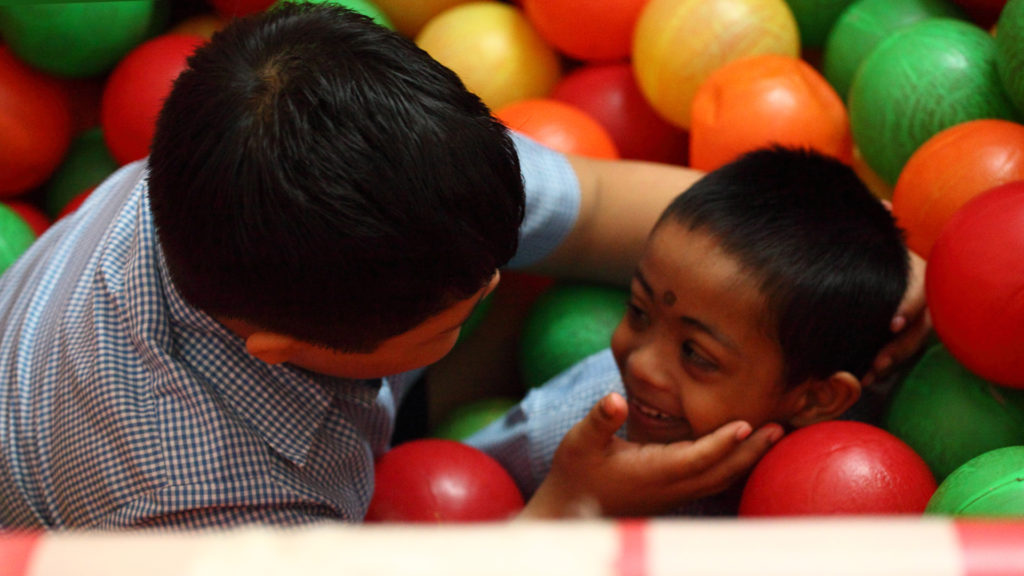Autism is known as a “spectrum disorder”, because the severity of symptoms ranges from a mild learning and social disability to severe impairment, with multiple problems and highly unusual behavior. The disorder may occur alone, or with accompanying problems such as mental retardation or seizures. Autism is not a rare disorder, being the third most common developmental disorder, more common than Down syndrome. Typically, about 1 in a population of 500 people are autistic or have autistic symptoms. 80% of those affected by autism are boys. Autism is found throughout the world, in families of all economic, social, and racial backgrounds. Doctors, politicians, and rickshaw drivers alike all have autistic children.
A child with high functioning autism may have a normal or high I.Q., be able to attend a regular school and hold a job later in life. However, this person may have difficulty expressing himself and may not know how to mix with other people. Moderately and more seriously affected children with autism will vary tremendously. Some autistic children do not ever develop speech, while others may develop speech but still have difficulty using language to communicate. Often, there is an unusual speech pattern, such as echoing whatever is said to them, repeating a word over and over, reversing “you” and “I” when asking for something, and speaking only to express needs, rather than emotions. A child with autism looks just like any other child, but has distinctive behaviour patterns. A child who is autistic may enjoy rocking or spinning either himself or other objects, and may be happy to repeat the same activity for a long period of time. At other times, the child may move very quickly from one activity to another, and may appear to be hyperactive. Many autistic children have sensitivity to certain sounds or touch, and at other times, may appear not to hear anything at all. Autistic children may have very limited pretend play; they may not play appropriately with toys or may prefer to play with objects which are not toys. Autistic children may be able to do some things, like sing songs or recite rhymes very well, but may not be able to do things requiring social skills very well.

